
Sign in
Don't have an account with us? Sign up using the form below and get some free bonuses!

When we hear the term "highly sensitive child" (HSC), we may think about an anxious child or an intensely shy child who cries often or is easily overwhelmed. Although sensitive kids may exhibit those traits on occasion, you may be surprised to learn those aren't actually the hallmarks of most highly sensitive kids.
This article will dispel common myths about highly sensitive kids and give parents tools to support their children exactly as they are. I'll share the five important things you need to know later in the article. First, I'll define what sensitive means, and what it doesn't.
To be clear upfront, though, know this: there's nothing "wrong" with high sensitivity. In fact, did you know that sensitive persons may have been instrumental to human survival?
Sensory processing sensitivity [more on this term in a moment] is thought to be one of two strategies that evolved for promoting survival of the species (Aron and Aron 1997; Wolf et al. 2008). By being more responsive to their environments, these more sensitive organisms have an enhanced awareness of opportunities (e.g., food, mates, and alliances) and threats (e.g., predators, loss of status, competitors), and thus may be more ready to respond to emerging situations. (source)
If highly sensitive people are partially to thank for the continuation of human existence, it's time we understand more about them--and help them thrive in today's environment.
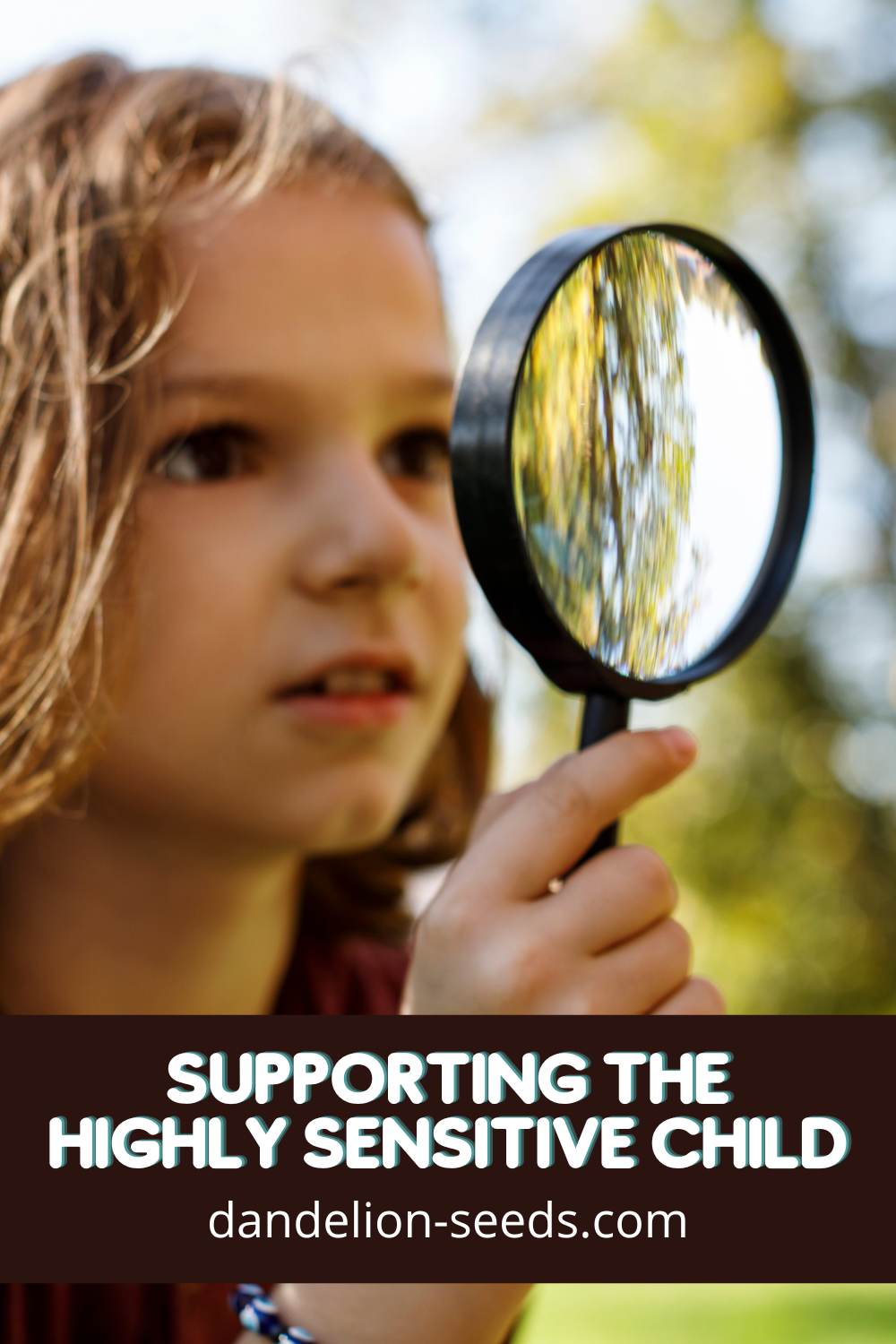
A highly sensitive person (HSP) or, in the case of children, a highly sensitive child (HSC) is:
"...a term coined by clinical psychologist Elaine Aron. According to Aron’s theory, HSPs are a subset of the population who are high in a personality trait known as sensory-processing sensitivity, or SPS. Those with high levels of SPS display increased emotional sensitivity, stronger reactivity to both external and internal stimuli—pain, hunger, light, and noise—and a complex inner life." (source)
In other words, a highly sensitive child may literally experience the world around them differently than others do. They're often more aware of their environment and all that's surrounding them, from the lights in the room to the smells coming from the kitchen and the noises coming from outside. Sensitive people are often hyper aware of their physical surroundings.
Their emotional world may differ from others', too. A highly sensitive child is a deeply feeling child. Big emotions can be overwhelming for many HSCs. It does not mean they're "moody" or "difficult." In fact, highly sensitive people, including sensitive kids, sometimes feel all their emotions extra intensely, including the emotions most people perceive as pleasant, such as joy and gratitude.
Additionally, their self-awareness and empathy may also be greater than others', so they're often caring friends and are deeply loyal to their family members. Their empathy and loyalty can offer them some distinct advantages in friendships and other close relationships (source).
In short, there's nothing at all "wrong" with a highly sensitive child. In fact, they're invariably an exceptional child with traits that, if we take the time to understand how to support them well, we can frame as superpowers.
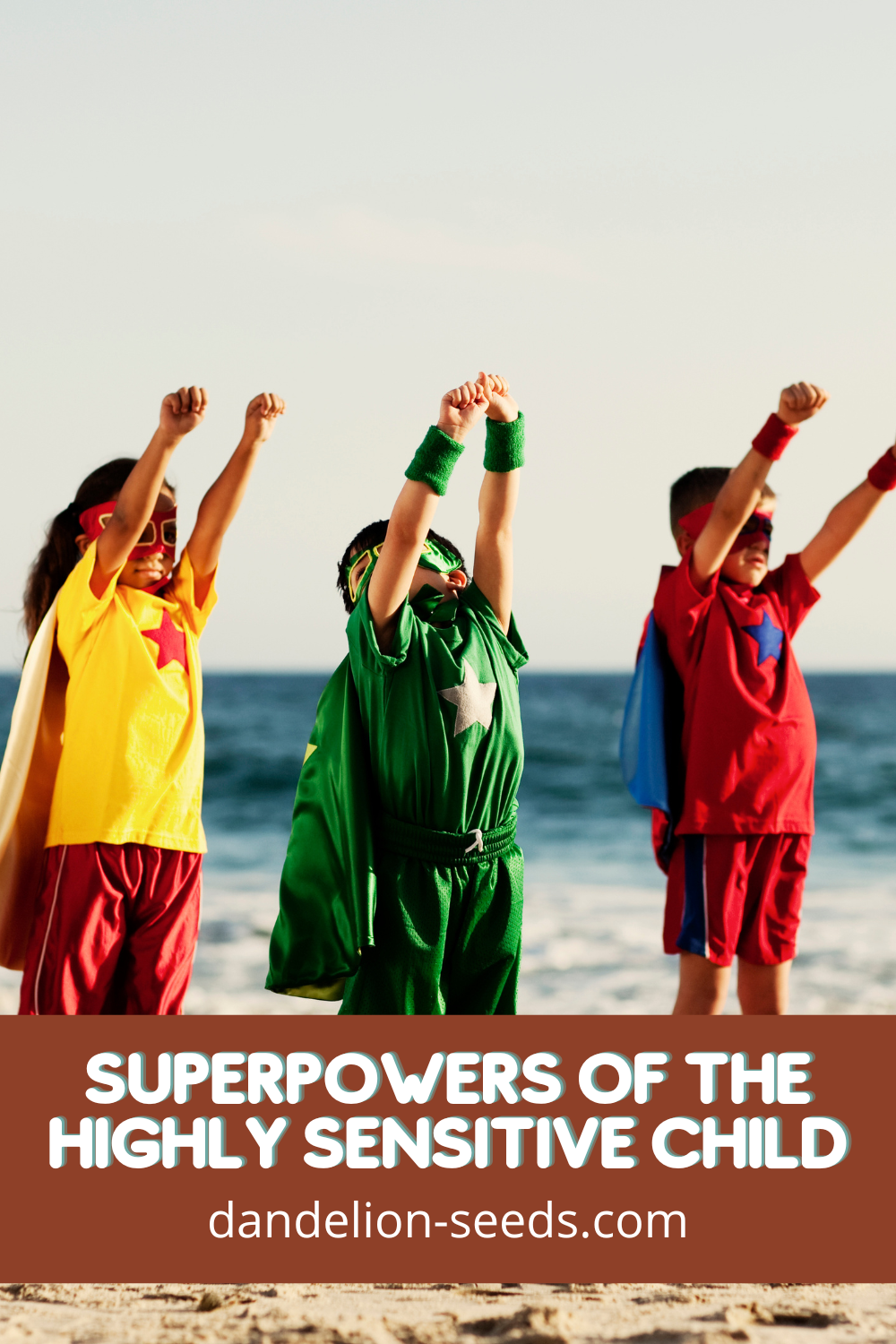
In addition to the empathy and loyalty mentioned above, most HSCs have greater self-awareness than others. They can sense subtle changes in not only their own emotions, but also in those of others. This can be a gift to their families in that they're often highly intuitive and can sense and adapt to the emotional tone of the room. They often come across as "wise beyond their years." This is especially true if they've received consistent emotional support early in life.
With this innate wisdom, they can often be a wonderful support to others. When they care, they care deeply. They may also be mature for their age, having picked up on and learned social cues from adults.
They may be cautious observers, sometimes seeming to hold back from larger groups while they gauge their safety, emotionally and otherwise. They often pay close attention to details, as well as the "big picture" of the world around them.
Many adults may have the sense that highly sensitive children are "wallflowers" or other less-than-flattering synonyms. However, not every highly sensitive child, or "shy" child, is an introvert (source). Perhaps surprisingly, few adults (parents, teachers, or otherwise) realize that 30% of sensitive children are extroverts. An extroverted child may be very outgoing and seem to thrive in busy environments, and still be highly sensitive.
Let's look at how a highly sensitive child who's an extrovert might perceive a situation. Although they might be outgoing and quick to play a game they don't know how to play in the spirit of making a new friend, let's say the other child laughs at them for not knowing the rules.
Although the child might've displayed extroverted characteristics in engaging boldly with someone new, that same outgoing child may deeply feel the insult. They may feel frustrated or hurt longer than some might expect, because the wound may run deeper than it would for some children. Extroverted children need as much emotional support as the child who seems to withdraw or be more introverted.
In addition to not every sensitive child being "slow to warm up," some can be hurt by labels. Mislabeling a highly sensitive child as "shy" can damage their self-esteem.
"...Labelling a child 'shy' means you're talking about who they are as a person, not just their behaviour. Children will often take others' observations seriously, especially those of the people they look up to..." (source)
Additionally, shyness is sometimes misconstrued as social anxiety. It's not.
"...Social anxiety disorder...involves the experience of anxiety and self-critical evaluation in social settings response to the fear of evaluation by others of one’s public performance. It has a greater disruptive influence on one’s social behavior than the experience of shyness..." (source)
Shyness isn't "bad," but as western cultures tend to value extroversion more, the label may prove damaging to the child. (source)
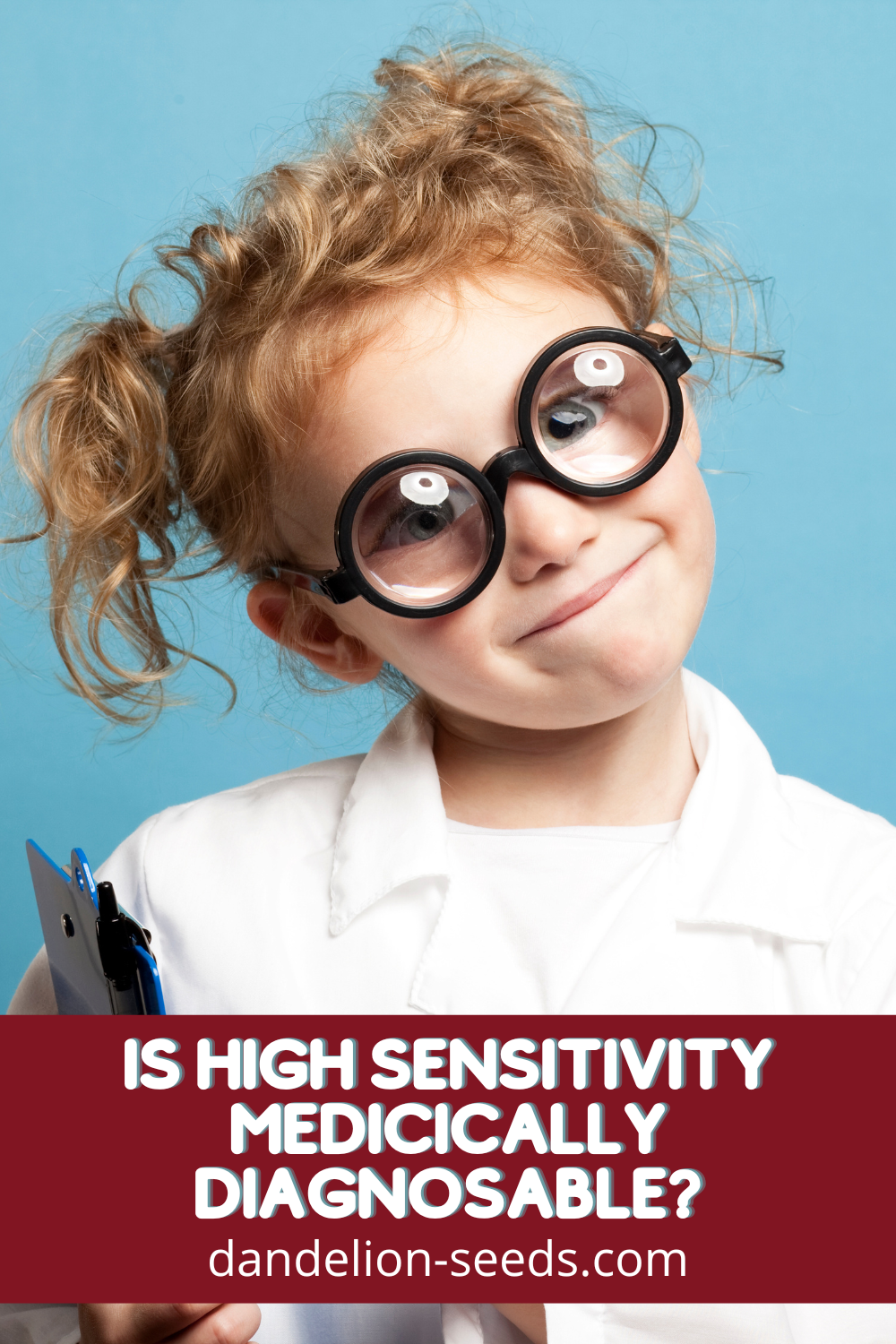
Being a highly sensitive person means little more than having certain temperament traits common to sensitive people. It is not a medical diagnosis, although it can be measured medically:
[SPS] is a temperamental or personality trait involving "an increased sensitivity of the central nervous system and a deeper cognitive processing of physical, social and emotional stimuli". The trait is characterized by 'a tendency to 'pause to check' in novel situations, greater sensitivity to subtle stimuli, and the engagement of deeper cognitive processing strategies for employing coping actions, all of which is driven by heightened emotional reactivity, both positive and negative'. (source)
Interestingly, it is possible to measure greater levels of sensitivity in MRI scans (source). Moreover,
[SPS] is becoming increasingly associated with identifiable genes, behavior, physiological reactions, and patterns of brain activation (Aron et al. 2012). A functionally similar trait—termed responsivity, plasticity, or flexibility (Wolf et al. 2008)—has been observed in over 100 nonhuman species including pumpkinseed sunfish (Wilson et al. 1993), birds (Verbeek et al. 1994), rodents (Koolhaas et al. 1999), and rhesus macaques (Suomi 2006).
Highly sensitive pumpkinseed sunfish. Huh.
High sensitivity is increasingly recognized in the medical community, but it's not a diagnosis and needs no "fixing." Although that's great, we also need to know how this affects our day-to-day life in parenting.
Being a highly sensitive person, whether child or adult, means feeling deeply. The "highs" of life may feel euphoric and joyful; the "lows" may touch on despair. Of course, a highly sensitive person will spend plenty of time in the emotional middle ground, too--but when they're inclined to feel something strongly, it may be amplified as compared with others' emotions.
As such, a highly sensitive child has a nervous system that can be easily overstimulated. They may be prone to expressing big emotions, because their nervous system is literally experiencing them as feeling bigger than those of other people.
Some highly sensitive kids will despise clothing tags, for example, because they find them uncomfortable. A less sensitive person might feel frustrated by what seems like "no big deal," but these kids are literally feeling them differently on their skin.
Not every highly sensitive child will care one whit about clothing tags, however. Each child's development is different, and sensitivity will show up in different ways for different people.
Highly sensitive children do not, by definition, have any "disorder," including attention deficit disorder, and they're not necessarily more anxious than other kids.
Further, they don't grow out of it by a certain age, nor are they "problem children." In fact, many highly sensitive kids are extremely well behaved due to their self-awareness and extremely perceptive understanding of others' experiences.
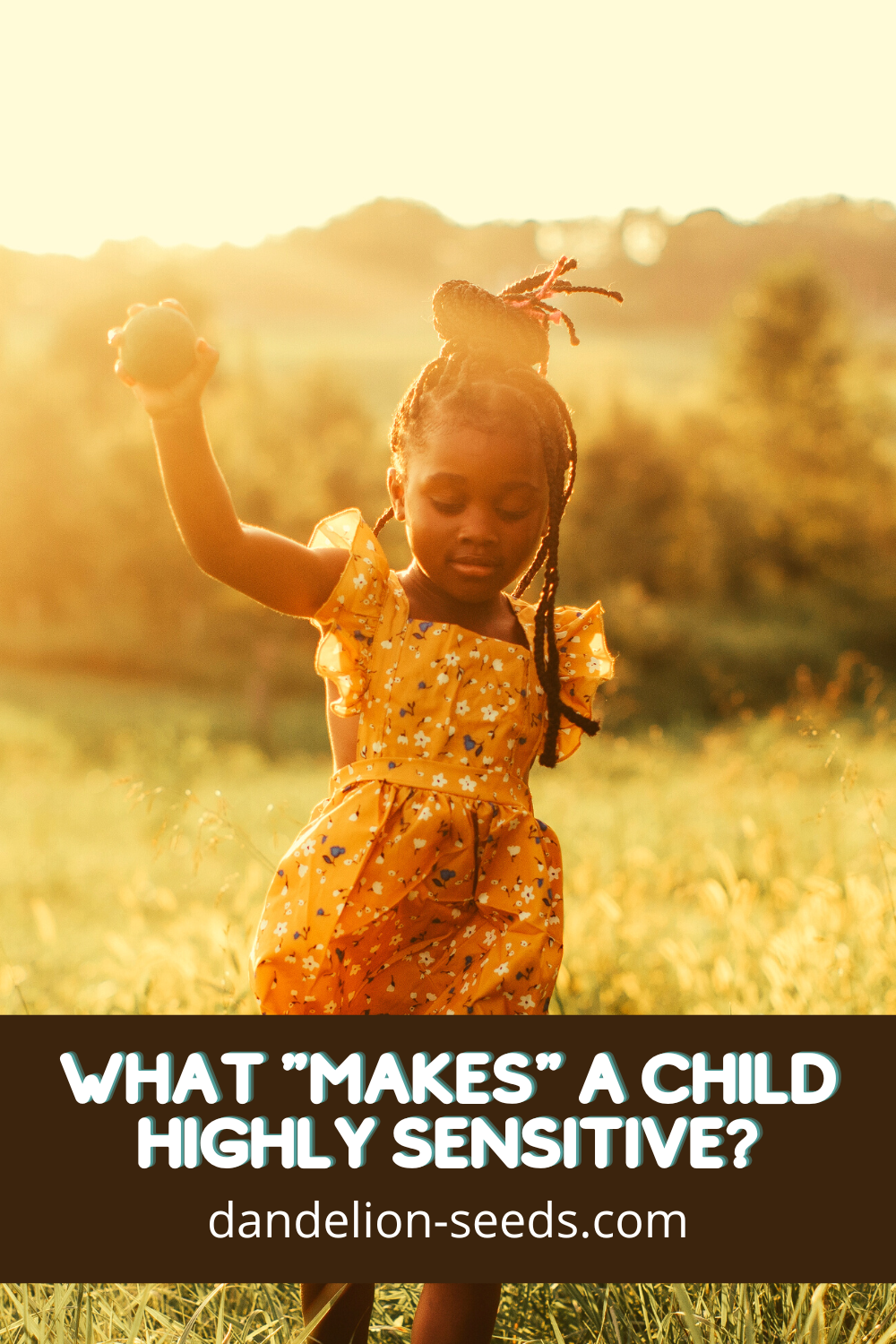
High sensitivity comes from not only the same types of genes that affect other temperament traits, but also the child's environment:
"...genetic factors account for between 20% and 60% of the phenotypic variance in personality, which means that the remaining 80% to 40% of the variance is attributed to environmental factors. Clearly, the environment is very important to temperament." (source)
Does this mean parents "make" their children sensitive? Not necessarily. Environment is important, but genetics play a strong role, too. As an example, let's think about hair. If a blond-haired child spends a lot of time in the sun, their hair is likely to get lighter. Conversely, if they spend more time indoors, their hair isn't likely to lighten much. There's variation within the "blondness" that can be affected by environment.
At the same time, if you put a black-haired child outside, it's highly unlikely that their hair will get substantially lighter. Their genes simply don't allow for that.
When it comes to a highly sensitive child, we can influence their sensitivity through their environment, but we can't give them genes they don't have, nor can we take away the genes they do have.
Highly sensitive children grow up to be highly sensitive adults. How we support and nurture them, however, can help determine how effectively they manage their sensitivity, and whether they see it as a gift or a hinderance.
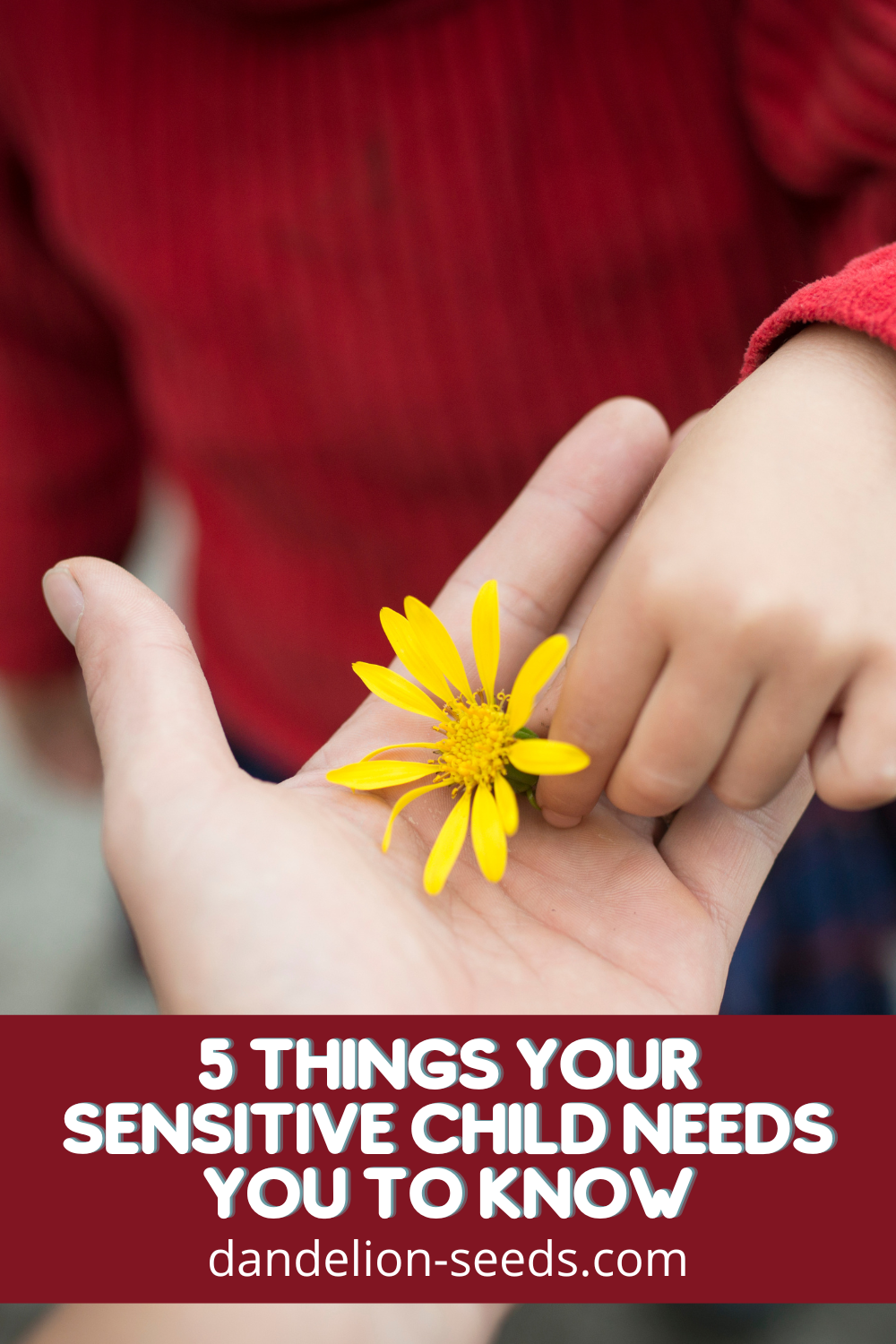
Know that the highly sensitive temperament means the child will experience legitimately more intense emotions than nonsensitive children. Feeling emotionally intense can be both wonderful and difficult; higher "highs," but also lower "lows."
As such, it's helpful to be emotionally attuned to their feelings. Something that might bother other kids only a little, for example, might be truly disturbing to sensitive kids. Check in. Validate what their emotional experience is, rather than projecting your own or assuming all children feel the same way about their experiences.
A toddler was meeting her uncle for the first time. Her uncle, assuming this child was like his own children, attempted to bond with her by startling her with an unexpected "Boo!" The child, however, was more startled than he anticipated, and she burst into tears. She withdrew from him for the rest of their day together, which was the opposite effect of what he'd hoped would happen.
In this example, the uncle could've paused to read the child's body language and see if she was advancing toward him with curiosity and playfulness, or retreating when he got closer, rather than charging at her with the "boo."
Although toddlers aren't developmentally ready to regulate their emotions, we can work with older highly sensitive children on their emotional regulation skills. This is not to say we should stop anyone from feeling their feelings. Quite the contrary.
Instead, we set them up for future success by teaching them what to do with their big emotions. This will help them immensely not only with their day-to-day existence, but it will also help them adapt in new situations as they arise.
Your child will experience their surroundings differently than others will.
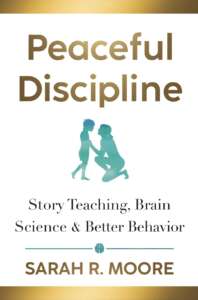
If a highly sensitive child is at a birthday party standing next to other children, hearing the same sounds and seeing the same lights, the highly sensitive child may literally experience those sounds and lights as being louder and brighter than the others kids do.
It's important to have a proper understanding of the child's perception; they may simply be highly aware of their surroundings, and therefore, may need more downtime to compensate for all the sensory input.
Be proactive about creating downtime before and after big-to-them events. Your child's nervous system will need the extra support and empathy for everything it's processing all at once. Your child may need more emotional support than some others do, including for some, more physical touch and words of affirmation.
Your tone and emotional authenticity matter. A lot.
Because highly sensitive children are often so in tune with their surroundings, they're likely to notice subtle changes many others might miss.
Let's say you have a challenging day at work. You come home and are happy to see your family, but you've got some lingering stress. The highly sensitive child may pick up on this stress, but because you've only said that you're "fine," they'll pick up on the disconnect between your tone and your words.
Younger children, in particular, may be prone to assuming that you're upset with them, even if it's not true. They simply don't know what else might be bothering you besides their presence, so they internalize the worry and their sense of emotional safety decreases.
Imagine what they're likely to be "reading" in your demeanor. In age-appropriate ways, be transparent about what you're feeling so they don't assume they've caused you to feel upset. Further, you can model for them healthy ways of managing your stress so that they learn how to release their own struggles.
Being authentic also helps the highly sensitive child learn to trust their intuition.
Your child probably wants you to unapologetically advocate for them until they're able to advocate for themselves.
Be aware of their school setting. Teachers understand that different children have different temperaments, and they can be aware that the highly sensitive child may not act quickly or feel emotionally prepared when pushed far out of their comfort zone. Instead, the teacher can help them ease into new situations by talking about them beforehand and showing empathy when kids are slow to warm up to new children, or activities, at school.
If you homeschool or unschool, child-led learning often helps highly sensitive children thrive.Ask for your child's consent to speak with the teacher. If they give it, follow through. This doesn't mean "coddle" the child; it means support them.
You aren't "making" a child be more sensitive by being responsive to their pleas for love and attention. Some family members may erroneously say things like "You're creating a mama's boy" or a "daddy's girl," but those are old clichés that serve no purpose . To the contrary, being responsive to a child's needs helps promote their independence. Responsiveness, along with attunement to a child's emotions and experiences, are proven to nurture secure attachments (source).
Adults in your child's life may pressure you to be tougher on your child to "prepare them for reality."
Remind those adults that we're raising children for the world we want. The gentler we are with children, the more gentleness they'll have to pass on to others as they grow up. Harshness breeds more harshness and disconnection. Kindness begets kindness. We are preparing them for reality if they grow up choosing friends and partners who treat them kindly and respectfully. They won't stand for less.
The most important thing parents and caregivers can do for sensitive kids of any age is to accept them for who they are, without trying to change them or "toughen them up." In fact, if we try to make them tougher, it may backfire--causing them to feel less supported, and more insecure.
A highly sensitive child can be extremely secure in their sense of self, especially when surrounded by adults who celebrate and cherish their sensitivity. In fact, as they grow, they can share their gifts with others. Celebrate and support these kids exactly as they are.
